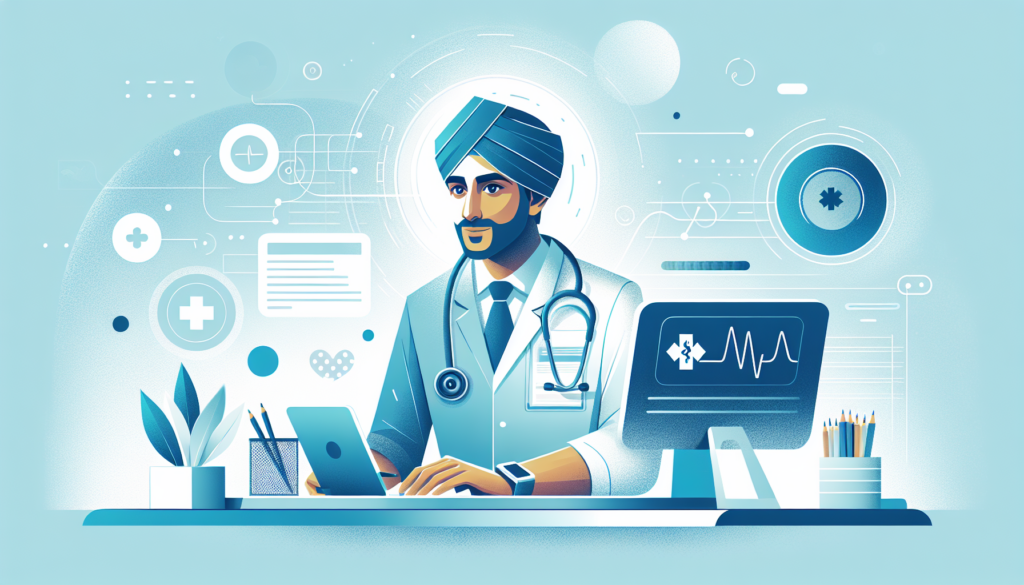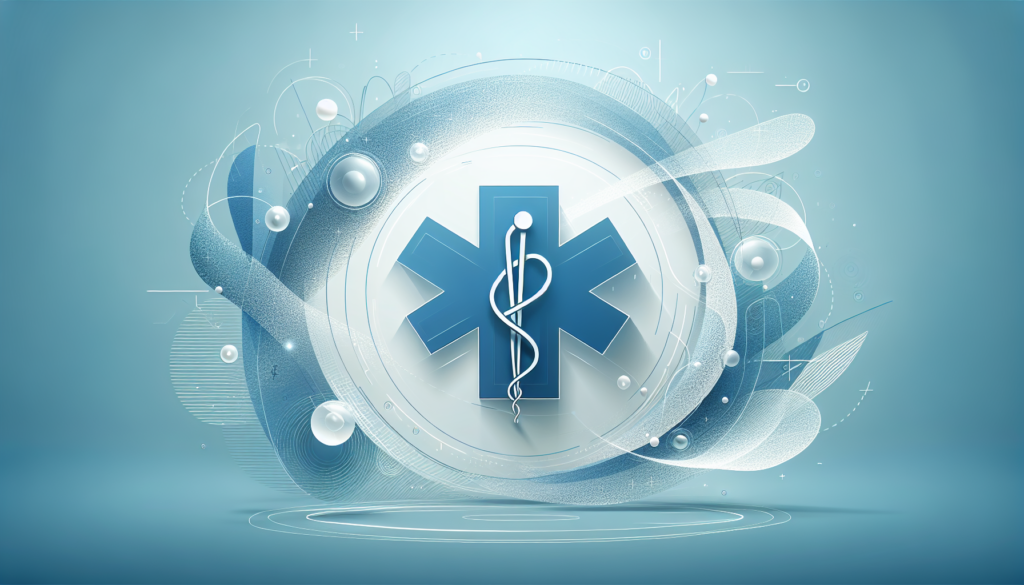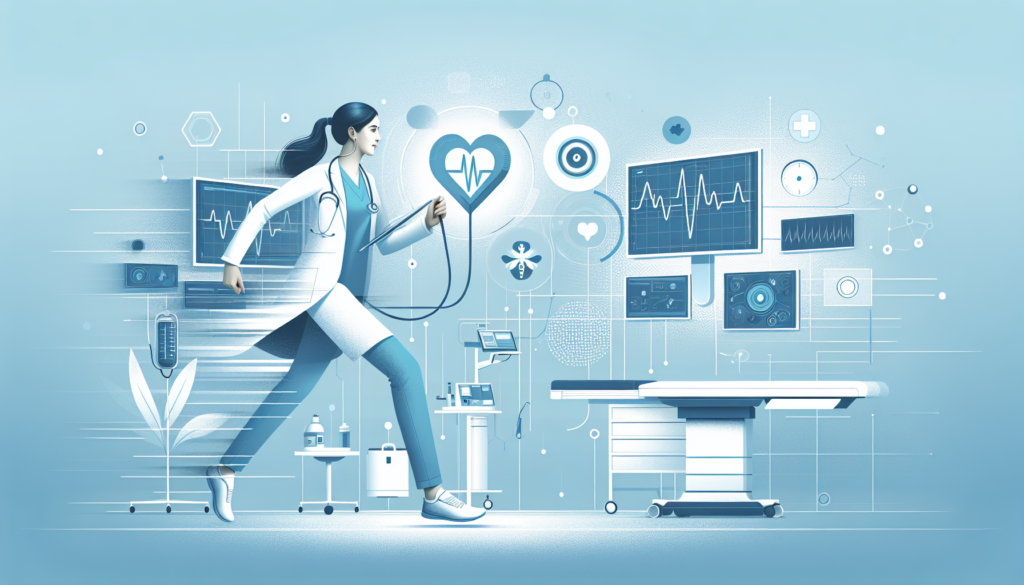Understanding Medical Transcription: The Importance of Terminology
At the heart of medical transcription lies a foundational element that cannot be overlooked: the precision of medical terminology. Unlike everyday language where synonyms or near-enough terms might suffice, in the realm of healthcare, an incorrect or imprecise term can lead to entirely different interpretations and potential consequences. Each term within medical lexicon serves a unique purpose, denoting specific conditions, procedures, anatomical sites, and even timescales critical to patient care. Understanding and utilizing the correct terminology ensures clear communication among healthcare professionals and is integral to maintaining the continuity and quality of patient care.
The breadth of medical terminology is vast and continues to expand with the advent of new technology and medical discoveries. Therefore, the role of medical transcription is to accurately capture the detailed and nuanced language of healthcare practitioners. Precision in transcription serves several crucial purposes: it fortifies the medical record’s accuracy, supports the billing process by correlating procedures with the correct codes, and provides a clear and concise blueprint for future care and ongoing research. The importance of terminology in medical transcription cannot be overstated, primarily because:
- Accuracy: Exact terminology means precise medical records, which are critical for patient safety and care continuity.
- Compliance: Accurate use of terminology is essential for meeting legal and ethical standards within the medical field.
- Communication: A common medical language promotes effective communication among interdisciplinary teams.
- Education and Research: Precise terms are crucial for training medical personnel and conducting reliable medical research.
This vital need for unerring precision within healthcare documentation is what makes AI-powered digital scribe services like Scribemd.ai not just revolutionary but essential. By leveraging advanced AI and language learning models, systems like Scribemd.ai go beyond mere word-for-word transcription; they contextualize, interpret, and ensure that complex medical terminologies and patient data are translated accurately into the patient record. This attention to terminological detail enables medical professionals to confidently depend on transcribed notes for their critical decision-making processes.
Professional transcribers and AI-powered transcription services alike must remain vigilant and up-to-date with the latest medical terminologies and industry standards. This ensures transcribed documents reflect the intended meaning with exemplary clarity and precision. As the medical field evolves, so too must the resources we use to document it, making the commitment to excellence in medical terminology an ongoing pursuit for any transcription entity.
A Comprehensive List of Essential Medical Transcription Terms
Medical transcription is a critical component within the healthcare industry, involving the process of converting verbal or recorded patient information into structured, written documents. This field utilizes a plethora of specialized terms that professionals must be well-versed in to maintain accuracy and efficiency. For medical transcriptionists, and even for those integrating technology like AI-powered digital scribe solutions such as ScribeMD, recognizing and understanding these terms is paramount for the effective execution of their duties. Terms ranging from patient diagnoses to operational procedures form the basis of documentation that directly impacts patient care and healthcare provider decision-making.
Let’s delve into an extensive inventory of these essential terms, which include:
- Anamnesis: The patient’s comprehensive medical history compiled through interviews and questionnaires.
- Biopsy: A procedure that involves the extraction of sample cells or tissues for examination to determine the presence or extent of a disease.
- Chondromalacia: The softening and deterioration of the cartilage beneath the kneecap.
- Dysphagia: Difficulty or discomfort in swallowing, indicative of various medical conditions.
Adopting medical transcription software that can accurately interpret and document these terms is critical, as it helps maintain the integrity of patient records.
Moreover, understanding medical transcription terminology extends to pharmacological and prescriptive language, including:
- ECG/EKG (Electrocardiogram): A test that records the electrical activity of the heart and is essential for identifying heart conditions.
- Formulary: An official list of prescription drugs approved for use by a particular health insurance company or hospital.
- Idiosyncrasy: An abnormal or unusual reaction to a drug that is peculiar to an individual patient.
- Prn (pro re nata): A term used in prescriptions that indicates “as needed” or “as the situation arises”.
With the complexities of these terms and the need for precise application in transcription, technologies that offer sophisticated language learning models can be invaluable assets to healthcare professionals, enhancing the functionality of medical service delivery.
It is clear that an extensive understanding of these terms, and their correct usage, is integral to the proficiency of any medical transcription initiative. Whether it’s a seasoned transcriptionist or an innovative solution like ScribeMD, the capacity to accurately capture the nuances of medical dialogue and translate them into clearly structured documents remains a cornerstone for quality patient care and medical record-keeping. Supporting medical professionals in this endeavor not only contributes to the enhancement of healthcare services but also epitomizes the blending of medical expertise with technological advancement.
Common Challenges in Medical Transcription and How Terminology Plays a Role
The landscape of medical transcription is fraught with complexities that stem from a myriad of sources, not least of which is the precise nature of medical terminology. Medical language is dense with esoteric terms, abbreviations, and acronyms, the correct interpretation of which is pivotal for high-quality documentation. Accurate transcription is critical since errors can lead to significant consequences, including misdiagnoses and inappropriate treatment plans. Moreover, medical jargon is continually evolving, making it a moving target even for experienced transcriptionists.
One of the most profound challenges in medical transcription is the deciphering of physician dictation. Doctors may use colloquial language, have distinct accents, or employ rapid speech, all of which can lead to inaccuracies. Slight misinterpretations can alter the meaning of medical information dramatically, making context and experience invaluable assets in a transcriptionist’s arsenal. Terminology is not simply a matter of correct spelling but of understanding the clinical context to differentiate between homophones like ‘ileum’ (a part of the intestine) and ‘ilium’ (a part of the hip bone), which could lead to a vastly different interpretation if transcribed incorrectly.
- Interpreting medical jargon and abbreviations accurately
- Deciphering physician dictation amidst colloquialisms and accents
- Understanding clinical context to avoid homophone errors
- Keeping pace with the evolving landscape of medical language
Furthermore, the integration of specialized knowledge with the transcription process is essential. A transcriber must be versed not only in medical terms but also in anatomical and physiological nuances, diagnostic procedures, and pharmacology. Such comprehensive understanding aids in recognizing when a term may be out of place within a particular medical specialty or context. Awareness of the latest terminology, including newly introduced drugs or innovative treatment methods, is another layer of complexity that underscores the importance of ongoing education and training.
Lastly, medical professionals may inadvertently complicate the transcription process by interacting with patients during dictation. Background noises, patient responses, or overlapping conversations can obscure important dictations, leading to blanks or inaccuracies in the medical record. Maintaining stringent transcription accuracy in such circumstances can be challenging and demands a focused and discerning approach to capturing every relevant detail. Transcriptionists must exhibit a keen ability to filter critical information from extraneous audio, ensuring the medical record’s integrity.
- Specialized knowledge in anatomy, procedures, and pharmacology
- Recognition of terminology usage within specific medical contexts
- Continuous education to stay abreast of medical language developments
- Ensuring accuracy amidst background noise and patient interactions during dictation
How AI-Powered Tools Like Scribemd.ai are Revolutionizing Medical Transcription Terminology
The field of medical transcription is experiencing a significant transformation, thanks to the integration of advanced AI-powered tools such as Scribemd.ai. This innovative digital scribe is at the forefront of an emerging trend that sees artificial intelligence not only transcribing verbal dictations but also interpreting complex medical terminology with impressive precision. By leveraging the latest developments in natural language processing and machine learning, AI transcription services can understand context, recognize a variety of medical terms, abbreviations, and even patient-specific information, making the process significantly more efficient than traditional methods.
With the introduction of these AI solutions, medical personnel are witnessing a substantial shift in how medical documentation is handled – from laborious manual transcription to swift and precise automated note-taking. This revolutionary technology is adept at handling a spectrum of medical dialects and accents, and can even filter out background noise to ensure that the transcribed data is of the highest quality. As a result, healthcare providers can trust that the medical reports, records, and notes reflect a clear and accurate record of their patient interactions and treatment plans.
- Enhanced accuracy in interpreting medical terminology
- Quick adaptation to various dialects and accents
- Advanced background noise cancellation for clear transcription
A key advantage of using AI like Scribemd.ai is its continual learning process; the technology is trained on expansive datasets that encompass a wide array of medical scenarios and jargon. This means that, over time, AI transcription tools become even more adept at recognizing and translating niche medical language into thorough and accessible notes. Such proficiency not only amplifies the value of medical documentation for care providers but can also play a central role in enhancing patient outcomes by facilitating more informed decision-making based on accurately captured data.
The rapid response time of AI transcription tools makes them particularly valuable in high-pressure medical settings. In the fast-paced environment of clinics and hospitals, time is a precious commodity. Scribemd.ai, for example, is designed to process and transcribe information almost instantaneously, freeing up doctors and nurses to focus more intently on patient care rather than administrative tasks. The seamless integration of AI-driven transcription services in healthcare workflows signifies a leap forward in operational efficiency and patient-centric care.
- Continuous learning from extensive medical datasets
- Immediate transcription reducing administrative workload
- Fostering better patient care through operational efficiency
Enhancing Your Medical Practice: Integrating Accurate Medical Transcription Terminology with Scribemd.ai
In the fast-paced world of healthcare, precision in medical documentation is paramount. Medical professionals understand that even the slightest inaccuracy in patient notes can lead to flawed patient care and potential legal issues. Integrating accurate medical transcription terminology is essential, and with Scribemd.ai, medical practices can ensure that the medical notes produced are meticulously precise. How does Scribemd.ai achieve this? It capitalizes on sophisticated AI and advanced language learning models engineered specifically for the medical field.
When medical practitioners dictate patient information, Scribemd.ai listens attentively, picking up on the complex lexicon that healthcare demands. The platform is comprehensive, covering a vast array of medical terms from various specialties and subspecialties, ensuring that the transcriptions reflect exactly what the clinician dictates. This depth is necessary when dealing with the nuances of medical language, which may include terms that are homophones or have similar pronunciations yet very different meanings. These nuances are where Scribemd.ai shines, distinguishing itself from generic transcription services that may lack the artificial intelligence to discern context within the medical dialogue.
- Ensures high-accuracy medical terminology through context-aware AI
- Reduces potential for errors caused by homophones and similar-sounding terms
- Adapts to various medical specialties for comprehensive support
The integration process with Scribemd.ai is designed to be seamless, making adoption into the healthcare workflow effortless. It is tailored to simplify the transition from traditional note-taking practices to advanced, AI-powered transcription. For healthcare facilities considering improving their medical practice’s efficiency, the step towards integrating Scribemd.ai signifies not just a technological upgrade, but also a strategic move towards a more resilient and error-resistant documentation system. With continual updates and improvements in recognition algorithms, the service adapts in parallel with the ever-evolving medical lexicon, immortalizing the promise of accuracy, irrespective of the burgeoning inventory of medical terminologies.
- Facilitates a smooth transition and integration into existing workflows
- Constant updates ensure alignment with evolving medical lexicon
- Offers a resilient and error-resistant solution for medical documentation



